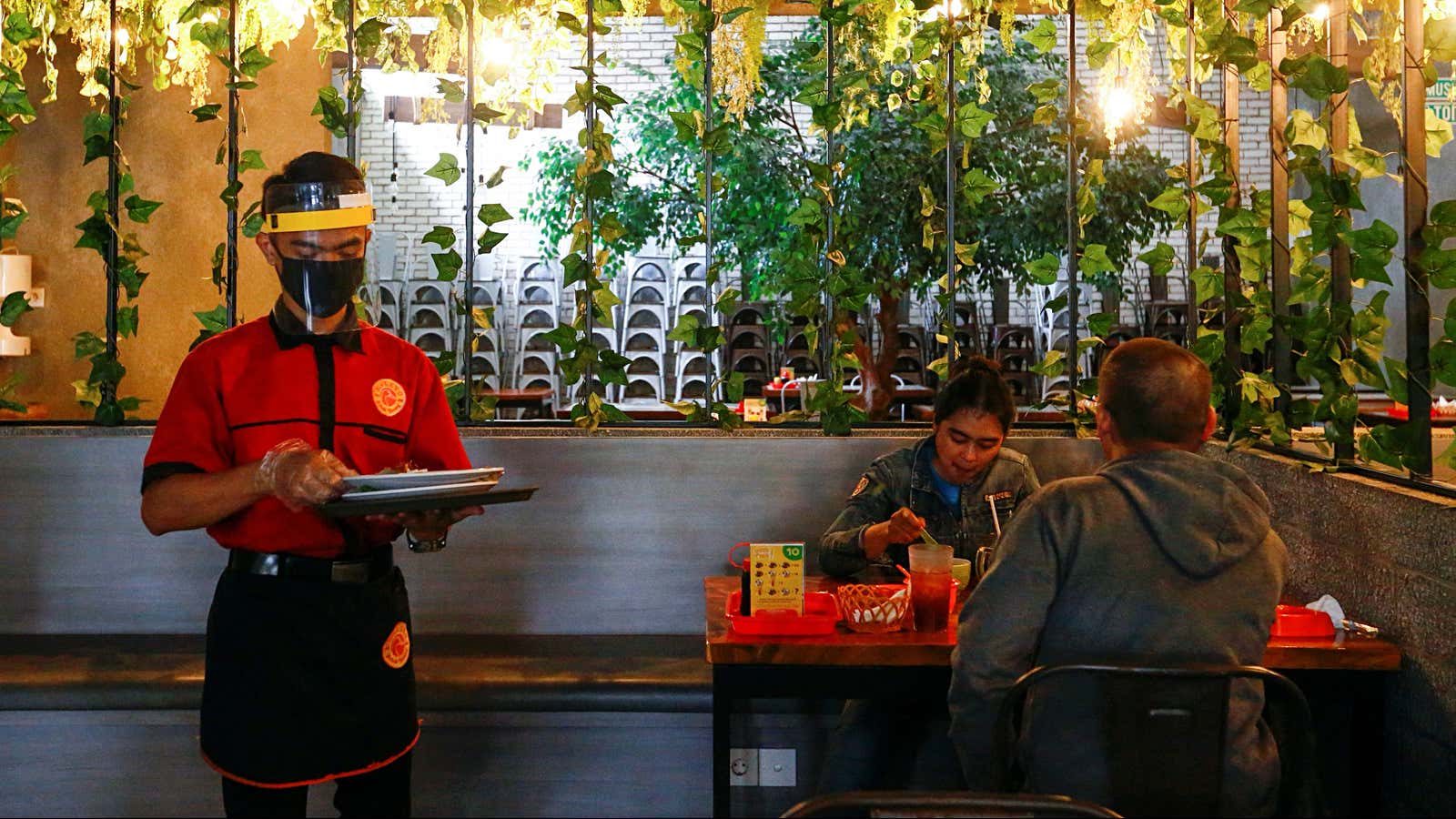Workers hit hard by Covid-19 layoffs may be in for another blow: automation.
Many jobs lost to coronavirus-induced cutbacks are those at risk of being replaced by technology, like positions in the service sector. Because of this, researchers at the Federal Reserve Bank of Philadelphia (pdf) believe the pandemic has likely accelerated the process of automation in a number of occupations.
“Automation is happening at a faster pace now,” author Lei Ding told Quartz. “Many jobs that could be replaced in the next 10 years—that’s happening in a few months, now.”
Jobs affected by COVID-19 and at risk of automation
According to the research, jobs that have been greatly impacted by Covid-19, and are at high risk of being lost to automation, include:
- 🚕 Taxi drivers
- 💁♀️ Restaurant servers
- 👷 Highway maintenance workers
- 🚌 School bus drivers
In some places, the technological takeover is already happening as companies reduce costs and attempt to minimize human contact. Recently, hotels in the San Francisco Bay Area introduced room-service robots, toll collectors in Pennsylvania were replaced by license plate scanners, and robots in Boston allow doctors to do contact-free monitoring of patients.
“As firms struggle to avoid workplace infections of Covid-19 and prevent shutdowns during the crisis, machinery, and software, which are not susceptible to the virus, become more attractive options than rehiring the temporarily displaced human workers,” write the paper’s authors Lei Ding and Julieth Saenz Molina. “This is expected to be more evident in occupations that are more vulnerable to the pandemic, such as those that have a higher risk of virus transmission or do not permit remote work.” If those substitutions are easy, the move is likely to become permanent.
Jobs lost to automation during recessions
It won’t be the first time economic catastrophe kick-starts technological and robotic automation. Since the 1980s, almost all US employment losses in occupations that are easier to automate occurred during recessions.
“In the past three recessions in the US a lot of automatable jobs were lost. The loss generally became permanent during the recovery,” said Ding. Workers in many of those jobs were subsequently replaced by technology, leading to jobless recoveries.
It’s unclear if this forced automation will be permanent, but it will become increasingly likely to remain as the effects of the pandemic, and the virus itself, linger.
“It all depends on the virus, and how long, and how well we can control the virus. If it’s under control in a relatively short time period, of course the loss will be less,” says Ding. “If it evolves into a longer term recession, it might be a little bit different.”
